
Mystic Blade | DVD (Indican Pictures)
Get ready for the latest roll of new Blu-ray & DVD releases handpicked by cityonfire.com. We have to warn you, it’s one heckuva list…
The spooky month of October brings Asian, action, horror, cult, martial arts, new school, old school and even some Italian westerns! It’s definitely our longest list yet! (And they say physical media is dead? Yeah right…)
If you’re interested in purchasing any of the titles, we’re hoping you’ll click on our Amazon.com links to show your support towards cityonfire.com.
Raw Force: October 7, 2014
Vinegar Syndrome presents the Blu-ray & DVD for the 1982 cult classic, Raw Force (aka Kung Fu Cannibals or Shogun Island). Raw Force is a U.S./Filipino martial arts action film directed by Edward D. Murphy (Heated Vengeance) and starring John Dresden (Final Mission), Geoffrey Binney (Hot Potato), Jewel Shepard (Return of the Living Dead) and Camille Keaton (I Spit on Your Grave).
Asia Extreme Collection Volume 1: October 7, 2014
Pallisades Tartan presents the DVD for Asia Extreme Collection Volume 1: South Korean Horror Films. This 3-disc set includes the following titles: Kong Su-Chang’s R Point (2014), Yoo Sang-Gon’s Face (2004) and Kim Yong-Kyoon’s Red Shoes (2005).
Asia Extreme Collection Volume 2: October 7, 2014
Pallisades Tartan presents the DVD for Asia Extreme Collection Volume 2: Japanese Horror Films. This 3-disc set includes the following titles: Shinya Tsukamoto’s Snake of June (2003), Yuichi Sato’s Pray (2005) and Shinya Tsukamoto’s Vital (2004).
Asia Extreme Collection Volume 3: October 7, 2014
Pallisades Tartan presents the DVD for Asia Extreme Collection Volume 3: Thai Horror Films. This 3-disc set includes the following titles: Mark Duffield’s Ghost of Mae Nak (2005), Monthon Arayangkoon’s The Victim (2006) and Paul Spurrier’s P (2005).
Jean-Claude Van Damme Triple Feature: October 7, 2014
MGM presents the Jean-Claude Van Damme Triple Feature Blu-ray set, which includes Albert Pyun’s Cyborg (1989), Sheldon Lettich’s Double Impact (1991) and Deran Sarafian’s Death Warrant (1990), written by David S. Goyer (The Dark Knight, Man of Steel, Justice League).
Bruce Lee Action Pack: October 7, 2014
Echo Bridge presents the Bruce Lee Action Pack DVD set. This 2 disc collection includes the following titles: One Down Two to Go (1976), starring Fred Williamson, Jim Brown and Jim Kelly; L.A. Street Fighters (1985) aka Ninja Turf, starring Phillip Rhee; Laser Mission (1989) starring Brandon Lee, Terminal Rush (1996), starring Don “The Dragon” Wilson and Roddy Piper; Fist of Fear, Touch of Death (1980), starring Fred Williamson and Ron Van Clief; Bruce Lee Fights Back from the Grave (1976); and Blind Fist of Bruce (1979) and The Image of Bruce Lee (1978), both starring Bruce Li.
Talk to the Dead: October 7, 2014
Pathfinder Entertainment presents the DVD for for Norio Tsuruta’s Talk to the Dead. From the Producer of The Ring, The Grudge and Dark Waters comes a dark tale of tragedy revolving around Yuri and her troubled family. But it when Yuri discovers a mysterious mobile app that is rumored to enable its user to talk to the dead, things get deadly! What VHS tapes did for The Ring, mobile apps will do for Talk to the Dead! The film stars Kazuki Kato, Ayaka Komatsu and Chihiro Ohtsuka.
Cult: October 7, 2014
Pathfinder Entertainment presents the DVD for Koji Shiraishi’s Cult. From the producer of The Ring, The Grudge and Dark Water, comes the chilling tale of pop idols who play themselves as they appear on a paranormal television show to investigate the exorcism of the Kaneda family. The supernatural events in the Kaneda household are recorded by the documentary team. A mysterious shaman seems to be the only hope of salvation not only for the family, but for the investigators as well. Cult stars Yaeko Kiyose, Ryosuke Miura, Mari Iriki, Yu Abiru and Mayuko Iwasa.
Missing in Action: Double Feature: October 7, 2014
MGM presents the Blu-ray for the Missing in Action: Double Feature, which includes Joseph Zito’s Missing in Action (1984) and Lance Hool’s Missing in Action 2: The Beginning (1984/1985). Norris ‘n ‘Nam? A match made in heaven!
Chuck Norris Total Attack Pack: October 7, 2014
MGM presents the Chuck Norris Total Attack Pack Blu-ray set. This 3 disc collection includes three of Norris’ most acclaimed films, including an early one by filmmaker Andrew Davis (The Fugitive, Under Siege): Lone Wolf McQuade (1983), starring David Carradine; Code of Silence (1985), starring Henry Silva; and The Delta Force (1986), starring Lee Marvin and Robert Forster.
Duck, You Sucker: October 7, 2014
MGM presents the Blu-ray for 1971’s Duck, You Sucker (aka A Fistful of Dynamite), directed by Sergio Leone (Once Upon A Time in the West). When an IRA explosives expert meets up with a revolutionary bandit in Mexico, he is persuaded to join their cause. Available for the first time on Blu-ray! Duck, You Sucker stars Rod Steiger, James Coburn and Romolo Valli, with another excellent soundtrack by prolific composer, Ennio Morricone (The Good, the Bad and the Ugly).
Good Guys Wear Black & Force of One: Remastered: October 14, 2014
American Cinema presents the DVD Double Feature for Chuck Norris’ Good Guys Wear Black & Force of One: Remastered. In 1978’s Good Guys Wear Black, an ex-US Army commando (Norris) must find the reason why his comrades from his unit are being systematically murdered before he is next. In 1979’s A Force of One, when the detectives of an undercover police unit are being mysteriously killed by a martial artist, a professional kick boxer (Norris) is hired to assist them. This Double Feature also contains over 2 hours of bonus material.
Van Damme 5-Movie Action Pack: October 14, 2014
Universal presents the Van Damme 5-Movie Action Pack Blu-ray set, which includes John Woo’s Hard Target (1993), Jean-Claude Van Damme’s The Quest (1996), Steven E. de Souza’s Street Fighter (1994), Peter Hyams’ Sudden Death (1995) and for the first time on Blu-ray, Sheldon Lettich’s Lionheart (1990).
The Last Supper: October 14, 2014
Random Media presents the Blu-ray & DVD for Lu Chuan’s The Last Supper. The story focuses on the famous Hongmen Banquet, which was held in 206 B.C. by one warlord with the express purpose of assassinating his rival. The Last Supper features an impressive cast, including Yu Liu (Curse of the Golden Flower), Daniel Wu (New Police Story), and Chen Chang (Crouching Tigger, Hidden Dragon).
Mercenaries: October 14, 2014
Asylum Home Entertainment presents the Blu-ray & DVD for Mercenaries (aka Prison Raid). A diplomatic official is captured and imprisoned while touring a war zone, so a team of elite female commandoes is assembled to infiltrate a women’s prison for a daring rescue. Mercenaries stars Kristanna Loken (Terminator 3: Rise of the Machine), Vivica A. Fox (Kill Bill Vol. 1), Zoë Bell (Death Proof), Nicole Bilderback (Sideliners), Brigitte Nielsen (Red Sonja) and Cynthia Rothrock (Raging Thunder).
Mortal Kombat: Legacy II: October 14, 2014
Warner Bros. presents the Blu-ray & DVD for Kevin Tancharoen’s Mortal Kombat: Legacy II (aka Mortal Kombat: Legacy – Season 2). Featuring Casper Van Dien as Johnny Cage, Cary-Hiroyuki Tagawa as Shang Tsung, Eric Jacobus as Stryker, Michelle Lee as Mileena, David Lee McInnis as Raiden, Ian Anthony Dale as Scorpion, Samantha Tjhia as Kitana, Harry Shum, Jr. as Kuai Liang (Sub-Zero’s younger brother), Brian Tee as Liu Kang, Mark Dacascos as Kung Lao, Kim Do Nguyen as Ermac, and Daniel Southworth as Kenshi.
Penance: October 18, 2014
Music Box Films presents the Blu-ray for Season 1 of Kiyoshi Kurosawa’s Penance (aka Shokuzai), an eerie, intense psychological thriller. When a mysterious stranger approaches a group of young friends, one of them is kidnapped and brutally murdered. Wracked with grief, the victim’s unhinged mother (Kyoko Koizumi) demands that the shaken survivors identify the killer or face a penance of her choosing.
Mystic Blade: October 21, 2014
Indican Pictures presents the DVD for 2013’s Mystic Blade, an English language, Thai martial arts flick, directed by David Ismalone (Ong Bak, Tom Yum Goong 2). Sam (Don Ferguson of Tom Yum Goong) is a killer by trade, one of a group of merciless men known as the Shadow Syndicate, whose business is delivering fate for a price. But when Sam is asked to erase the line between honor and evil, he turns his back on the Shadows. Now, they want him dead.
Misfire: October 21, 2014
Image Entertainment presents the DVD for Misfire. Martial arts star Gary Daniels (The Expendables) is back with a new action film called Misfire. Directed by R. Ellis Frazier (Dead Drop), the official plot of Misfire centers arounds a hardened DEA agent names Cole (Daniels), who descends into the dangerous underworld of Tijuana, Mexico in search of his journalist ex-wife who he believes has been abducted by a charismatic Cartel boss with aspirations for public office.
Kundo: Age of the Rampant: October 21, 2014
Well Go USA presents the Blu-ray and DVD for the South Korean film Kundo: Age of the Rampant (aka Band of Thieves). This 19th century period action/martial arts film stars Ha Jung-woo (The Chaser) and Kang Dong-won (The X), and directed by Yoon Jong-bin (Nameless Gangster). Kundo: Age of the Rampant revolves around a group of righteous thieves who steal from corrupt public officials and give to the poor. But things get deadly when the thieves come across a powerful figure.
The Squad: October 21, 2014
Shout! Factory presents the Blu-ray & DVD for The Squad, a 2011 Colombian action-horror film directed by Jaime Osorio Marquez. When contact is lost with a military base set deep in the desolate plains of Colombia, a special high mountain command unit is sent to check things out. On arrival they find only one person alive and gradually the isolation and inability to communicate with the outside world takes its toll on their sanity.
Snowpiercer: October 21, 2014
Anchor Bay presents the Blu-ray & DVD for Snowpiercer, directed by Bong Joon-Ho (The Host) and produced by Park Chan-Wook (Sympathy for Mr. Vengeance). A post-apocalyptic ice age forces humanity’s last survivors aboard a globe-spanning super train. One man (Evans) will risk everything to lead a revolt for control of the engine and the future of the world. Snowpiercer stars Ed Harris, Chris Evans, Song Kang-Ho, Ko Ah-Sung, John Hurt and Tilda Swinton.
Guardian: October 21, 2014
Millennium presents the DVD for the Indonesian action thriller, Guardian. If you’re a fan of Merantau, The Raid or The Raid 2, then Guardian might be your cup of tea. Just keep in mind, this is definitely an action flick where guys take the back seat! Written and directed by Helfi Kardit (Suster Keramas), Guardian stars Sarah Carter (DOA: Dead or Alive), Dominique Diyose (Love for Share), Belinda Camesi (Laskar Cilia) and Tio Pakusadewo (The Raid 2: Berandal).
Himizu: October 14, 2014
Olive Films presents the Blu-ray & DVD for 2011’s Himizu, directed by Sion Sono (Cold Fish, Love Exposure). Based on Minoru Furuya’s best selling manga of the same name, Himizu follows two teenagers (Shota Sometani and Fumi Nikaido) living a dystopian existence in post-tsunami Japan who embark on a campaign of violence against evil wrong doers.
4 Film Favorites: Blades & Battles Collection: October 28, 2014
Warner presents the Blu-ray set for the 4 Film Favorites: Blades & Battles Collection. This 4 disc set includes 1995’s Mortal Kombat, 1997’s Mortal Kombat: Annihilation, 2011’s Mortal Kombat: Legacy and 1997’s Spawn. The above films feature the following stars: Michael Jai White, Matt Mullins, Darren Shahlavi, Robin Shou, Christopher Lambert, Cary-Hiroyuki Tagawa, John Leguizamo and Martin Sheen.
Moebius: October 28, 2014
RAM Releasing presents the DVD for Kim Ki-duk’s Moebius. A father driven into desire, a son coveting that of his father’s, and the sorrowful maternity that hovers them into tragedy. Moebius stars Jo Jae-hyun (The Isle), Seo Young-joo (Juvenile Offender) and Lee Eun-woo (A Ghosts Story). Be sure to read our review!
009-1: The End of the Beginning: October 28, 2014
Tokyo Shock presents the DVD for 2013’s 009-1: The End of the Beginning, directed by Koichi Sakamoto (Kamen Rider Fourze the Movie: Everyone, Space Is Here!). Marking the 75th anniversary of his birth, Shotaro Ishinomori’s classic spy heroine manga, 009-1, has been adapted into a live-action motion picture. The story concerns a female cyborg who works as a secret agent. 009-1: The End of the Beginning stars Mayuko Iwasa, Minehiro Kinomoto, Nao Nagasawa, Mao Ichimichi, Shizuka Midorikawa, Naoto Takenaka and Aya Sugimoto.
Shogun Assassin: October 28, 2014
Animeigo presents the Blu-ray & DVD for Shogun Assassin, starring the legendary Tomisaburo Wakayama (Black Rain). Shogun Assassin is perhaps the most famous – and bloodiest – samurai film in the Western world. Unlike the currently released Shogun Assassin: 30th Anniversary Collector’s Edition, this new version contains both the Blu-ray & DVD discs.
Street Fighter: Assassin’s Fist: October 28, 2014
Funimation presents the Blu-ray & DVD for Street Fighter: Assassin’s Fist. Watch Ken, Ryu, Akuma and many other of your favorite characters from Capcom’s Street Fighter video game come to life! Originally released as a 12-episode web series by Machinima, Street Fighter: Assassin’s Fist will now be showcased as a 143 minute, full length film, with 13 minutes of bonus footage not seen in the web series.
Companeros: October 28, 2014
Blue Underground presents the Blu-ray for Companeros, written and directed by the legendary Sergio Corbucci (Django), Companeros is a once-in-a-lifetime teaming of the two greatest European stars in `Spaghetti Western’ history. Franco Nero (Django), Tomas Milian, Jack Palance and Fernando Rey star in this action-packed comedy classic that also features a remarkable score by Ennio Morricone (The Good, The Bad and the Ugly).
Looking for new import releases?
If you’re looking for a new import release, please visit DDDhouse.com. The trusted retailer carries new and upcoming releases that are not yet available in North America.

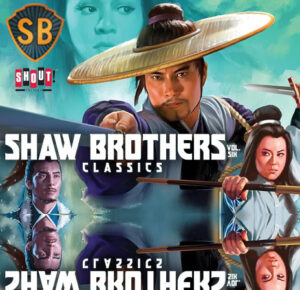
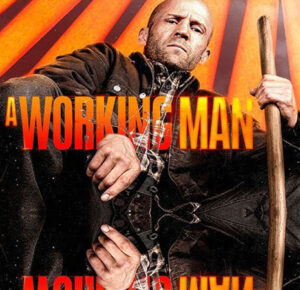
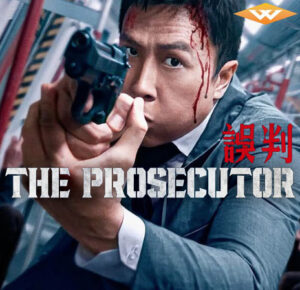
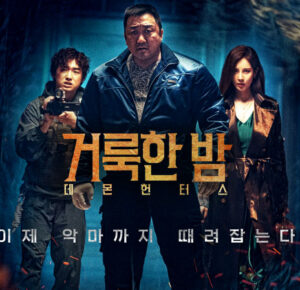












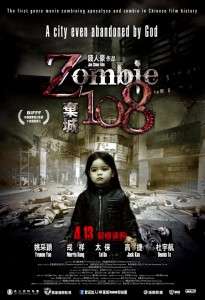





Be the 1st to Comment